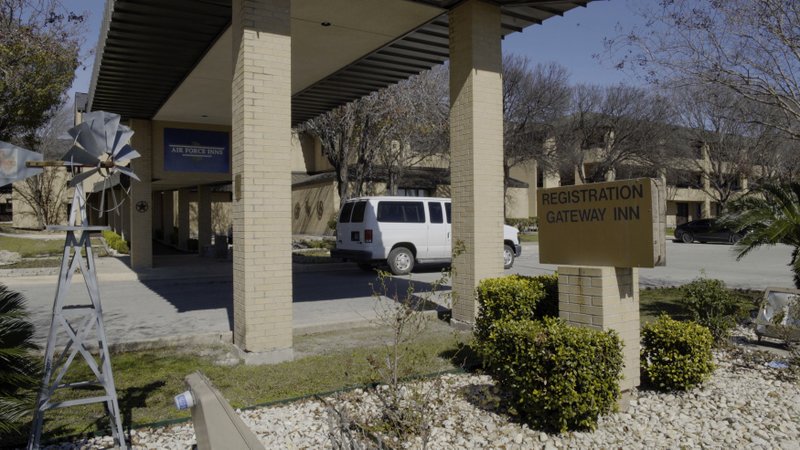WASHINGTON -- The Pentagon is already helping combat the coronavirus outbreak in the United States and is considering ways to do more.
But the military faces limits. Its health care system is geared more toward handling combat casualties than infectious diseases. And there are logistical and legal concerns about expanding the military's role in civilian affairs, such as tasking it with enforcing quarantines. Defense officials also want to be careful not to do anything to weaken its ability to defend the nation.
At the request of the Department of Health and Human Services, the Pentagon has made housing available at four military bases for some passengers taken from the Grand Princess cruise ship, which was hit with a cluster of coronavirus cases. It also has made available housing at other bases for people entering the U.S. at certain civilian airports and needing monitoring.
At those bases, the people being given housing are cared for by civilian agencies, not the military.
[CORONAVIRUS: Click here for our complete coverage » arkansasonline.com/coronavirus]
Defense Secretary Mark Esper said Tuesday he is making 5 million respiratory masks available to Health and Human Services, including 1 million to be provided immediately. The Pentagon also will provide to civilian agencies as many as 2,000 special-purpose military ventilators, he said.
Also, Army scientists are researching and testing vaccines for the coronavirus, in coordination with civilian agencies. Esper visited Fort Detrick, Md., on Tuesday where the research is under way.
NATIONAL GUARD WORK
The most extensive role for the military thus far is by the National Guard, which is being called up by governors in several states to provide a range of support.
More than 1,600 National Guard members have been called up so far. Some are helping at state emergency operations centers; others are providing transportation for civilian health care providers; and some are collecting and delivering test samples.
U.S. Northern Command, which is responsible for defending the U.S. homeland, said in a statement Monday that any Defense Department assistance to the coronavirus crisis "would be secondary to our primary mission to defend the United States. A range of planning efforts cover scenarios which include aiding in the establishment of medical treatment sites, providing shelter for displaced persons, assisting with food transportation, and numerous other logistical efforts."
There are many ways the military could assist in the covid-19 crisis, but few decisions have been made. Air Force Brigadier Gen. Paul Friedrichs, the top doctor for the Joint Chiefs of Staff, told reporters Monday that defense officials are trying to identify "what's within the realm of the possible," while also spelling out what the trade-offs for that would be.
For example, Friedrichs said, if large numbers of National Guard members were mobilized for medical assistance, they would be taken away from their civilian jobs, which in some cases are in health services already engaged in fighting covid-19.
The military could deploy mobile hospitals, but they generally are designed to deal with combat casualties, not infectious disease.
The military also operates 36 fixed hospitals inside the United States. They could be used for the covid-19 emergency, but in most cases they are relatively small. They exist to support active-duty military members, their families and some military retirees.
Some have questioned why the military cannot contribute to the civilian stockpile of ventilators, which might be in short supply in the weeks ahead. Jonathan Hoffman, the Pentagon's chief spokesman, declined to say how many ventilators the Pentagon has in stock. Asked why, he replied, "Because the number deals with our deployable medical capability, which is a number that we're not prepared to give out."
The Pentagon also has two hospital ships, the USNS Comfort and the USNS Mercy. They can be equipped to perform surgeries and provide other medical services, but the medical professionals who would be called on to staff the ships are currently performing those roles at domestic military hospitals and clinics or at private medical facilities.
Esper also said he is considering activating National Guard and Reserve units for federal duty to help states with planning, logistics and medical support "as needed."
The Defense Department has a detailed pandemic response plan that lays out the myriad of things the military can do if requested, including a last-resort role in helping to impose quarantines and border restrictions.
A Section on 03/18/2020
